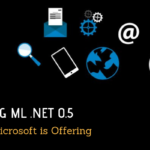Why differentiation is the biggest lie in marketing
Over the years, successful CEOs and CMOs, have consistently asked me about the biggest lie in marketing. The belief you need to make a long-established product or service appear different. For small companies, differentiation is a way of taking on larger firms in a competitive marketplace. It could mean highlighting something tangible like speed, power, performance, or customer service, or advocating a more diffuse quality, such as being more contemporary than your rivals.
In my view, far too many businesses are suffering over differentiation. There are entire organisations philosophically blindsided by its false promises, and consider it to be essential to their success. The misguided emphasis on differentiation is disproportionate to its impact. Ironically, this marketing myth was first invented to sell commercials in the mid-twentieth century. Marketers are, unfortunately, falling for the hype and have been caught up in this ridiculous perception.
Do not believe the hype
Whenever I speak to a journalist, hoping they will publish an article on behalf of my clients, they will always ask you what is new? In other words, what is their differentiation strategy? While you may take this question as a cue to discuss innovation, the reporter is only asking, because they believe this angle will generate more clicks.
While it is not a disadvantage to be offering a new product or service, it is not relevant if you have a genuinely competitive offer. Clicks, engagement and audience traction can be produced in numerous ways. Competence and expertise have never required a differentiation strategy. Class will always speak for itself.
I once hired Shachar Ronen as my company attorney. He is smart, organised, responsive, and extremely well connected in his field. While I have deep admiration for his personal and professional qualities, they are not differentiation on his part. There must be around 80,000 lawyers in Israel and offer near identical services to Shachar. While some lawyers are more gifted than others, and some will operate in bespoke or niche fields, but ultimately it’s their results that sets them apart.
Knowing your marketplace is important, but refusing to entering a thriving sector because it is competitive is cowardly. When you think there is not enough space for your business. Ask yourself, why are so many law firms, supermarkets, shoe stores, and banks?
Success has many fathers, but when you sell the same cucumber as everybody else, you are relying on being competent, not different. Standing out only matters if what you’re offering is unique, or when you are the first to provide a particular product or service. How many people were the first one in their sector do you know? Even Uber, Yandex, and DiDi, who operate in cutting edge technologies, have almost identical services to one another.
Be good not different
The myth that you have to be different is one of the biggest lies in marketing. If people could get rid themselves of this misconception, they could focus on their strengths and find a profitable way forward. The key to controlling your market is through business-development, networking, and knowing your company’s strengths and weaknesses.
Sometimes when things are working out in business, we still question our methodology and look for something elusive that is not there. The key is to chart the strengths needed by your target audience and see which of these strengths already exist in your organisation, and which require developing.
If you are good at sales, but you are not responsive, hire someone who has those qualities. If no new business is emerging, develop lead generation capabilities or get outside assistance. While there are many ways to achieve business and marketing goals, the first step is knowing your strengths, not your differentiation.
Learning how to lead
I grew up in a household that told me that my chances of becoming a millionaire were low. My parents are smart, well-established professionals, and yet every time I had an idea, I was told someone else had done it before. I rebelled against their advice, and today, my firm works with banks, corporations, VCs, and disruptive tech companies. We have been trading for only eight years, and I always ask my clients, why are you reaching out to me? Am I the only one who is offering PR and marketing services? It is self-evident that other firms are providing the same as me, but I know we are exceptionally competent in what we do.
It took me years to recognise that my strengths are business development, marketing, sales, and strategy. I use my abilities to help create better marketing funnels, enhance my client’s plans, and help mentor others. In areas where I had a skills gap, I learned how to bridge them by hiring people who are better than me. I see hiring people where I am weaker as a strength.
My business’s success has nothing to do with differentiation. It is not a unique proposition. My company is exceptionally well managed, highly skilled, and experienced in core areas. There is a growing demand for our services as we get results. Remember, most things in business have already been done before, so you have to learn how to do it better, not waste time mythologising a false distinctiveness.
















